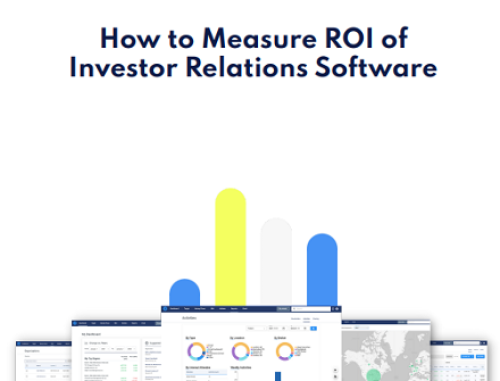Process was complicated by BT's 1.2 mn private investors
BT is the world’s oldest communications company, dating back to the Electric Telegraph Company (ETC) of 1846. The ETC later transmogrified into the General Post Office, the state-run industry responsible for the UK’s post and telephones, and British Telecom was eventually privatized in a whopping high-profile IPO.
All that was 25 years ago; today BT is part of the new world order. It provides landline, broadband services and mobile communications for individuals and corporations; HD and on-demand television for consumers; and a range of communications services to corporations and governments worldwide. The company’s market cap is now £10.6 bn ($16.2 bn) and its shares are traded in London and New York.
Cutting costs, retaining involvement
What distinguishes BT from most other companies in IR terms, however, is the enormous number of shareholders on its register. At 1.2 mn, that number is significant, as is the proportion of retail shareholders making up the total, at 99 percent.
No one disputes the value of retail shareholders: they’re more inclined to buy your products for a start, especially if those products are must-have items like phones and the latest IT kit. And retail holders are more loyal – most of BT’s retail investors have held their stock since flotation – which can be particularly useful in times of crisis.
But nor does anyone dispute the cost of keeping 1.2 mn people updated with hard copies of annual and interim reports, along with all the other bits of regular correspondence required by law and corporate events. An additional cost was the launch of BT’s annual magazine, Forward, for its private shareholders in 2006.
When new legislation was introduced in the UK to remove the obligation on companies to send printed documents to shareholders, BT saw it as both a threat and an opportunity. Clearly it offered the chance for real cost savings, but it could also represent a threat to the company’s strong engagement with retail holders.
BT’s strategy was to act early, well in advance of the legislation coming into force. ‘Our approach was to encourage as many shareholders as possible into an electronic relationship,’ explains Anna Watch, who looks after communications with retail investors. ‘We used incentives such as prize draws, email alerts and the facility to have payments made directly into their bank accounts.’
It was an approach that worked pretty well. ‘We had 250,000 shareholders already partly converted to electronic before the legislation came into force,’ reports Watch. ‘They were happy to go fully electronic because they saw the benefits.’
Some 750,000 individuals had not elected to go electronic, but nor had they specifically asked to maintain the status quo. ‘Our legal obligation was just to notify them,’ notes Watch. ‘But we didn’t want to disenfranchise them.’ The concern was that a sudden cut-off might prompt these shareholders to make a specific request to continue getting hard copies. So BT carried on sending Forward to them, along with various other financial documents, in the traditional format.
By 2010, however, it was time for a change. The company sent all shareholders a new physical publication, a leaflet called Update. This contained a financial summary, some persuasive stuff about the advantages of e-communications and information about special offers on BT services for shareholders.
The conversion
Most importantly, Update announced the conversion of Forward from an annual hard-copy magazine into an online annual publication with quarterly updates. In his letter to shareholders in Update, chairman Sir Michael Rake wrote: ‘We are now making the publication of shareholder information on our website our default method of providing information...’
Rake explained the benefits to shareholders of having more up-to-date information online. But he also let them know that if they really wanted to see a physical copy of anything – other than Forward – they could write to the registrars, Equiniti, to request it.
Nick Glanvill of London-based Greentarget Strategic Communications has been advising BT on its shareholder communications for almost 10 years and was closely involved with moving Forward online. He says typical approval ratings for the hard-copy Forward had been in the 85 percent-95 percent range.
‘We are now waiting to see what the user stats are like over the first few months of the online version,’ Glanvill says. First indications are good, however. ‘Thousands of users are visiting the site regularly,’ he confirms. ‘And a significant number have signed up for email alerts to know when new stories appear.’










